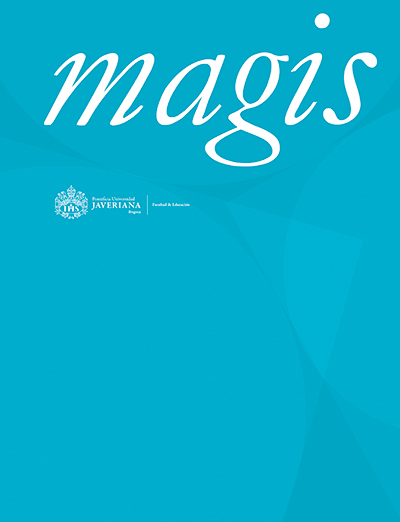Resumen
Este artículo explora los usos predominantes de la teoría en la investigación en ciencias sociales en relación con el enfoque de la filosofía fenomenológica. Este artículo explora los pensadores claves de la tradición filosófica de la fenomenología para argumentar que esta tradición puede plantear retos para las concepciones predominantes de la investigación y la teorización en las ciencias sociales y para cierta(o)s idea(le)s filosóficos que pueden conectarse a ellas. Se delinea la naturaleza distintiva de la descripción fenomenológica y se esbozan nuevas posibilidades para la investigación cualitativa.
Denzin, N. K. & Lincoln, Y. S. (1998). Strategies of Qualitative Inquiry. California: Sage Publications.
Eagleton, T. (2003). After Theory. Cambridge, Massachusetts: Basic Books.
Giorgi, A. (1997). The Theory, Practice, and Evaluation of the Phenomenological Method as a Qualitative Research Procedure. Journal of Phenomenological Psychology, 28 (2), 235-260.
Glendinning, S. (2007). In the Name of Phenomenology. Oxford: Routledge.
Heidegger, M. (1992 [1925]). History of the Concept of Time. Indiana: Indiana University Press.
Heidegger, M. (2004 [1954]). What is Called Thinking? New York: Harper & Row.
Heidegger, M. (2005 [1927]). Being and Time. Kundli, India: Blackwell Publishing.
Husserl, E. (1983 [1913]). Ideas Pertaining to a Pure Phenomenology and to a Phenomenological Philosophy Book One. London: Kluwer Academic Publishers.
Jarvis, M. & Oakley-Brown, L. (2004). Talking after Theory: An Interview with Terry Eagleton. English, 53 (207), 177-190. https://doi.org/10.1093/english/53.207.177
Krause, M. (2016). The Meanings of Theorizing. The British Journal of Sociology, 67 (1), 23-29. https://doi.org/10.1111/1468-4446.12187_4
Kuhn, T. (1962). The Structure of Scientific Revolutions. Chicago and London: University of Chicago Press
Mulhall, S. (2001). Inheritance and Originality: Wittgenstein, Heidegger, Kierkegaard. Clarendon Press: Oxford.
Mulhall, S. (2008). The Wounded Animal: J. M. Coetzee and the Difficulty of Reality in Literature and Philosophy. Princeton: Princeton University Press.
Oxford University Press, OUP (2017). Oxford English Dictionary, OED. http://www.oed.com
Ryle, G. (2009 [1958]). A Puzzling Element in the Notion of Thinking. In Julia Tanney (ed). Gilbert Ryle Collected Papers, Volume 2, 404-419. Oxford: Routledge.
Sartre, J.-P. (1933). Nausea. London: Penguin.
Standish, P. (1992). Beyond the Self: Wittgenstein, Heidegger and the Limits of Language. London: Ashgate.
Standish, P. (1995). Why We Should Not Speak of an Educational Science. Studies in Philosophy and Education, 14 (2-3), 267-281.
Swedberg, R. (2016). Before Theory Comes Theorizing or How to Make Social Science More Interesting. The British Journal of Sociology, 67 (1), 5-22. https://doi.org/10.1111/1468-4446.12184
Taylor, C. (1997). Lichtung or Lebensform: Parallels between Heidegger and Wittgenstein. In Charles Taylor. Philosophical Arguments, 61-78. Cambridge, Massachusetts: Harvard University Press.
Taylor, C. (2013). Retrieving Realism. In Joseph K. Schear (ed.). Mind, Reason and Being-in-the-World: The McDowell-Dreyfus Debate, 61-90. Oxford: Routledge.
Williams, E. (2015). In Excess of Epistemology: Siegel, Taylor, Heidegger and the Conditions of Thought. Journal of Philosophy of Education, 49 (1), 142-160. https://doi.org/10.1111/1467-9752.12103
Williams, E. (2016a). The Ways We Think: From the Straits of Reason to the Possibilities of Thought. London: Wiley-Blackwell.
Williams, E. (2016b). Oakeshott, Bonnett, Derrida and the Possibilities of Thought. In D. Bakhurst & P. Fairfield (eds.). Education and Conversation: Exploring Oakeshott’s Legacy. London: Bloomsbury.
Wood, D. (2002). Thinking after Heidegger. Oxford: Polity Press.
La revista magis, Revista Internacional de Investigación en Educación by Pontificia Universidad Javeriana se encuentra registrada bajo la licencia Creative Commons Reconocimiento 4.0 Internacional. Por lo tanto, esta obra se puede reproducir, distribuir y comunicar públicamente en formato digital, siempre que se reconozca el nombre de los autores y a la Pontificia Universidad Javeriana. Se permite citar, adaptar, transformar, autoarchivar, republicar y crear a partir del material, para cualquier finalidad (incluso comercial), siempre que se reconozca adecuadamente la autoría, se proporcione un enlace a la obra original y se indique si se han realizado cambios. La Pontificia Universidad Javeriana no retiene los derechos sobre las obras publicadas y los contenidos son responsabilidad exclusiva de los autores, quienes conservan sus derechos morales, intelectuales, de privacidad y publicidad.
El aval sobre la intervención de la obra (revisión, corrección de estilo, traducción, diagramación) y su posterior divulgación se otorga mediante una licencia de uso y no a través de una cesión de derechos, lo que representa que la revista y la Pontificia Universidad Javeriana se eximen de cualquier responsabilidad que se pueda derivar de una mala práctica ética por parte de los autores. En consecuencia de la protección brindada por la licencia de uso, la revista no se encuentra en la obligación de publicar retractaciones o modificar la información ya publicada, a no ser que la errata surja del proceso de gestión editorial. La publicación de contenidos en esta revista no representa regalías para los contribuyentes.



